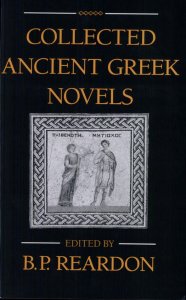 We are looking at the gospel narratives in their literary-narrative context. First, we saw a tale of an empty tomb; then several instances of innocent heroes surviving crucifixion, followed by the entertaining notion of a bodily resurrection from the dead, and we’ll conclude with another favourite of mine, the prophecy-driven plot. The story in the Book of Acts is driven by prophetic announcements. Jesus instructs his followers to wait in Jerusalem for the moment they will be infused with the holy spirit. Paul is likewise told that he is chosen to gentiles and kings and that he will suffer persecution, and lo and behold, that’s just what happens. The gospels similarly contain the pronouncement that Jesus will have to suffer, die and rise again, and that, too, happens in the ensuing story.
We are looking at the gospel narratives in their literary-narrative context. First, we saw a tale of an empty tomb; then several instances of innocent heroes surviving crucifixion, followed by the entertaining notion of a bodily resurrection from the dead, and we’ll conclude with another favourite of mine, the prophecy-driven plot. The story in the Book of Acts is driven by prophetic announcements. Jesus instructs his followers to wait in Jerusalem for the moment they will be infused with the holy spirit. Paul is likewise told that he is chosen to gentiles and kings and that he will suffer persecution, and lo and behold, that’s just what happens. The gospels similarly contain the pronouncement that Jesus will have to suffer, die and rise again, and that, too, happens in the ensuing story.
That technique of a prophecy-led series of events is very common in ancient Greco-Roman fiction, too. (It is found more widely than that, extending back to epic poetry, beyond the Greek world, too, and of course in Old Testament narratives, but let’s continue with our theme of what we find in ancient Greek novels from the early Christian era.)
An Ephesian Tale of Anthia and Habrocomes, by an otherwise unknown Xenophon, is introduced by its translator Graham Anderson . . .
The main interest of Xenophon’s Ephesian Tale of Anthia and Habrocomes, to give it its full title, is as a specimen of penny dreadful literature in antiquity; it exhibits in vintage form the characteristics of the melodrama and the popular novel as it portrays the tribulations of a pair of lovers harassed by misfortune. The narrative exemplifies the basic pattern of late Greek romance: initial felicity rudely broken by journey and separation; danger to life, limb, and chastity; rescue by divine agency; and eventual reunion through similar means. . . . . Of the work’s date we know even less; suggested termini are inconclusive, and the most likely guess is the second century A.D. (p. 125)
Near the beginning of the story we read an oracle from Apollo that we will see sets out the outline of the rest of the plot:
The temple of Apollo in Colophon is not far away; it is ten miles’ sail from Ephesus. There the messengers from both parties asked the god for a true oracle. They had come with the same question, and the god gave the same oracle in verse to both. It went like this.
Why do you long to learn the end of a malady, and its beginning?
One disease has both in its grasp, and from that the remedy must be accomplished.
But for them I see terrible sufferings and toils that are endless;
Both will flee over the sea pursued by madness;
They will suffer chains at the hands of men who mingle with the waters;
And a tomb shall be the burial chamber for both, and fire the destroyer;
And beside the waters of the river Nile, to Holy Isis
The savior you will afterwards offer rich gifts;
But still after their sufferings a better fate is in store. (1.6)
And just as we read in the gospels how the disciples could not understand a prophecy that sounds clear enough to the reader, so we read the response of those for whom the oracle was meant: Continue reading “Prophecy Driven Narratives in Ancient Fiction”
